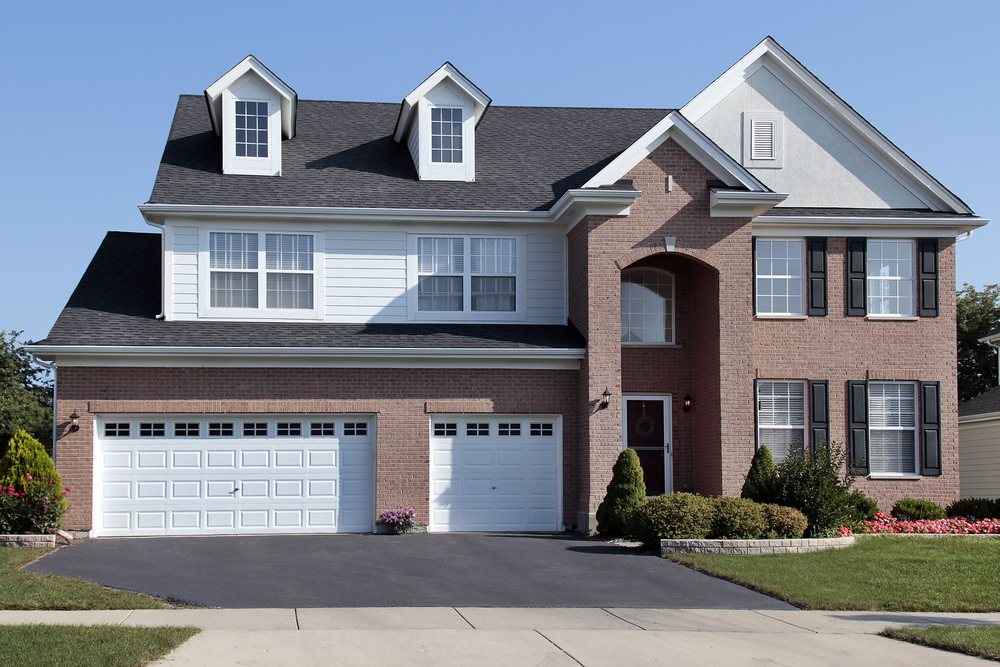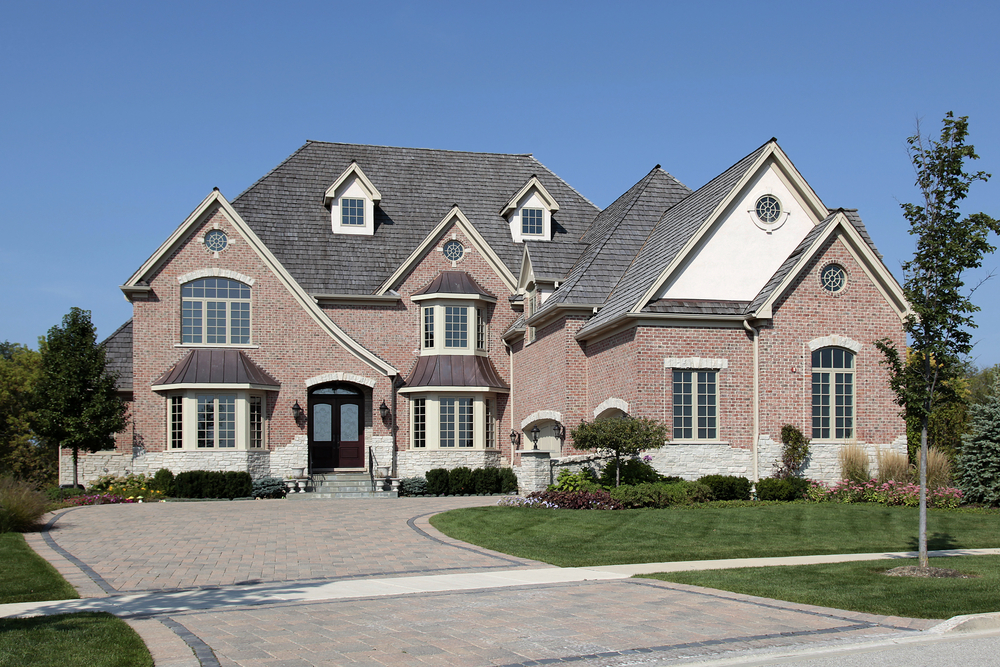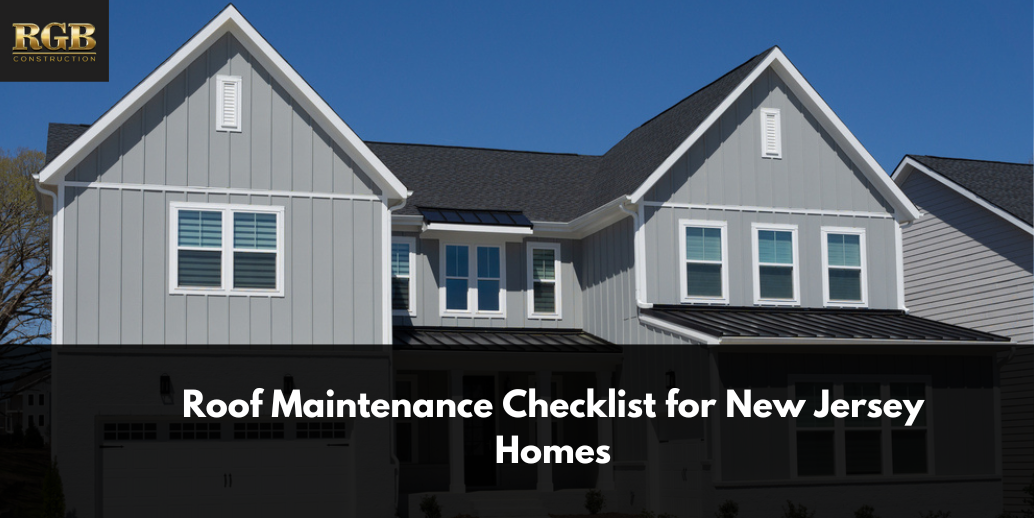Your roof is one of the most important parts of your home. It protects you and your family from the elements, enhances the appearance and value of your property, and saves you money on energy bills. Therefore, you want to make sure that your roof lasts as long as possible and performs well throughout its lifespan.
But how can you maintain your roof in New Jersey? What are some of the tasks and tips that can help you keep your roof in good condition and prevent problems? In this article, we will share a roof maintenance checklist for New Jersey homes that you can follow to extend the lifespan of your roof and avoid costly repairs.
Key takeaways
- Roof maintenance is essential for extending the lifespan and performance of your roof in New Jersey.
- Roof maintenance involves inspecting, cleaning, repairing, and protecting your roof regularly and properly.
- Roof maintenance can help you avoid costly and serious roof problems, such as leaks, mold, rot, and structural damage.
- Roof maintenance can also improve the appearance, value, and energy efficiency of your home.
- Roof maintenance requires working with a qualified and reputable roofing contractor, such as RGB Construction, who can provide you with high-quality and professional service.
Comparison table
| Task | Frequency | Benefit |
|---|---|---|
| Inspect your roof | At least twice a year or after a severe weather event | Detect and prevent roof damage, wear and tear, and potential problems |
| Clean your roof | At least once a year or more often if needed | Remove dirt, debris, leaves, branches, and other objects that can clog your gutters and drains, cause water damage and ice dams, and damage your roof shingles and elements |
| Repair or replace your roof | As soon as possible if you notice any issues or problems | Fix any issues or problems on your roof, such as missing, cracked, or broken shingles, dented or punctured vents, skylights, or flashing, granule loss or discoloration on shingles, water stains or leaks on ceilings or walls, mold or mildew growth on attic or roof deck, sagging or buckling of roof deck or rafters |
| Protect your roof | Before and after a severe weather event | Protect your roof from the weather and climate of New Jersey, such as rain, snow, hail, wind, and sun, that can cause water damage and ice dams, dents and cracks, tears and blow-offs, and fading and deterioration |

Brick Home In Suburbs With Arched Entry
Roof Maintenance Checklist for New Jersey Homes
Here are some of the tasks and tips that you should include in your roof maintenance checklist for New Jersey homes:
- Inspect your roof at least twice a year or after a severe weather event. You should inspect your roof at least twice a year, preferably in the spring and fall, or after a major storm or event. You can inspect your roof yourself or hire a professional roof inspector to do it for you. You should look for signs of damage, wear and tear, and potential problems on your roof, such as missing, cracked, or broken shingles, dented or punctured vents, skylights, or flashing, granule loss or discoloration on shingles, water stains or leaks on ceilings or walls, mold or mildew growth on attic or roof deck, sagging or buckling of roof deck or rafters. You should also check your gutters, downspouts, and drainage system for clogs, leaks, and rust.
- Clean your roof regularly and remove any debris. You should clean your roof regularly and remove any debris that may accumulate on your roof, such as dirt, leaves, branches, and other objects. Debris can clog your gutters and drains, cause water damage and ice dams, and damage your roof shingles and elements. You can use a broom, a leaf blower, or a garden hose to remove debris from your roof. You can also use a mild detergent or a roof cleaner to remove stains, algae, moss, and mold from your roof. You should avoid using a pressure washer, as it can damage your roof shingles and cause water intrusion.
- Repair or replace any damaged or worn-out roof shingles or elements. You should repair or replace any damaged or worn-out roof shingles or elements as soon as possible, as delaying the repair can lead to more damage and higher costs in the long run. You can repair or replace your roof shingles or elements yourself or hire a professional roofing contractor to do it for you. You should follow the manufacturer’s instructions and recommendations for repairing or replacing your roof shingles or elements. You should also use the same type and quality of roofing material as your existing roof to ensure a uniform and durable result.
- Protect your roof from the weather and climate of New Jersey. You should protect your roof from the weather and climate of New Jersey, which can include rain, snow, hail, wind, and sun, that can impact your roof in different ways. For example, rain and snow can cause water damage and ice dams, hail can cause dents and cracks, wind can cause tears and blow-offs, and sun can cause fading and deterioration. Therefore, you should choose a roofing material that is suitable for the weather and climate of New Jersey and protect your roof from the elements. You can protect your roof from the weather and climate of New Jersey by:
- Installing a roof underlayment, such as felt paper or synthetic membrane, to provide an extra layer of protection and insulation for your roof.
- Installing a roof ventilation system, such as ridge vents or soffit vents, to regulate the temperature and moisture of your attic and roof and prevent issues such as ice dams, condensation, and mold.
- Installing impact-resistant shingles, such as Class 4 shingles, which can withstand the impact of large hail stones and high winds.
- Installing a cool roof, which can reflect more of the sun’s rays and reduce the heat absorption and transfer of your roof, lowering your cooling costs and extending your roof’s life.

Luxury Brick Home In Suburbs With Cedar Roof
Conclusion
Your roof is a valuable asset that deserves your attention and care. By following this roof maintenance checklist for New Jersey homes, you can extend the lifespan of your roof and prevent problems that can compromise its performance and functionality. If you need any help or advice with your roof maintenance, you can contact us at RGB Construction, a family-owned and operated roofing company in New Jersey that has been serving the community since 2007. We have the experience, expertise, and equipment to handle any roofing project, no matter how big or small. We are certified by the National Roofing Contractors Association (NRCA), the Better Business Bureau (BBB), and the GAF Master Elite Contractor Program. We offer free estimates and consultations, high-quality materials and workmanship, lifetime warranties and guarantees, flexible financing options, fast and efficient service, friendly and professional staff, customer satisfaction and referrals. Contact us today and let us take care of your roofing needs.
FAQs
-
Q: How can I inspect my roof in New Jersey?
- A: You can inspect your roof in New Jersey by using a ladder, binoculars, or a drone to check your roof from the ground or from a safe distance. You can also go to your attic and look for signs of water damage, mold, or rot on your roof deck or rafters. You can also hire a professional roof inspector to inspect your roof for you and provide you with a detailed report and recommendations.
-
Q: How can I clean my roof in New Jersey?
- A: You can clean your roof in New Jersey by using a broom, a leaf blower, or a garden hose to remove dirt, debris, leaves, branches, and other objects from your roof. You can also use a mild detergent or a roof cleaner to remove stains, algae, moss, and mold from your roof. You should avoid using a pressure washer, as it can damage your roof shingles and cause water intrusion.
-
Q: How can I repair or replace my roof in New Jersey?
- A: You can repair or replace your roof in New Jersey by following the manufacturer’s instructions and recommendations for repairing or replacing your roof shingles or elements. You can also use the same type and quality of roofing material as your existing roof to ensure a uniform and durable result. You can also hire a professional roofing contractor, such as RGB Construction, to repair or replace your roof for you and provide you with a warranty and guarantee for their work and materials.
-
Q: How can I protect my roof in New Jersey?
- A: You can protect your roof in New Jersey by installing a roof underlayment, a roof ventilation system, and impact-resistant shingles. You can also install a cool roof, which can reflect more of the sun’s rays and reduce the heat absorption and transfer of your roof, lowering your cooling costs and extending your roof’s life. You can also trim or remove any overhanging branches or trees that could fall on your roof during a storm or damage your roof with their leaves, needles, sap, or fruits.
-
Q: How much does roof maintenance cost in New Jersey?
- A: The cost of roof maintenance in New Jersey depends on several factors, such as the size, slope, and condition of your roof, the type and quality of your roofing material, the labor and materials required, and the availability and demand of roofing contractors. The average cost of roof maintenance in New Jersey ranges from $300 to $1,000, depending on these factors.
-
Q: How often should I perform roof maintenance in New Jersey?
- A: You should perform roof maintenance in New Jersey at least twice a year, preferably in the spring and fall, or after a major storm or event. You should also perform roof maintenance whenever you notice any signs of damage, wear and tear, or potential problems on your roof, such as missing, cracked, or broken shingles, dented or punctured vents, skylights, or flashing, granule loss or discoloration on shingles, water stains or leaks on ceilings or walls, mold or mildew growth on attic or roof deck, sagging or buckling of roof deck or rafters.
Facts and Statistics
- According to the U.S. Department of Energy (DOE), a well-maintained roof can last up to 50% longer than a poorly maintained one. A well-maintained roof can also save up to 15% on annual heating and cooling costs by providing better insulation and ventilation.
- According to the National Association of Home Builders (NAHB), the average lifespan of a roof in the U.S. is 20 years, but it can vary widely depending on the type of roofing material, the quality of installation and maintenance, and the climate and weather conditions. For example, asphalt shingles can last 15 to 30 years, wood shingles can last 20 to 25 years, metal roofs can last 40 to 70 years, and slate, tile, and rubber roofs can last 50 to 100 years or more.
- According to the National Roofing Contractors Association (NRCA), the most common roof problems and issues in the U.S. are leaks, ponding water, punctures and penetrations, shrinkage and blistering, and poor installation and workmanship. These problems and issues can cause damage to your roof and home, as well as health and safety risks for you and your family.
- According to the Insurance Information Institute (III), the average homeowners insurance claim for roof damage in the U.S. was $11,200 in 2018, which was the 4th highest among all types of claims. The average homeowners insurance claim for roof damage in New Jersey was $10,800 in 2018, which was the 9th highest among all states.







